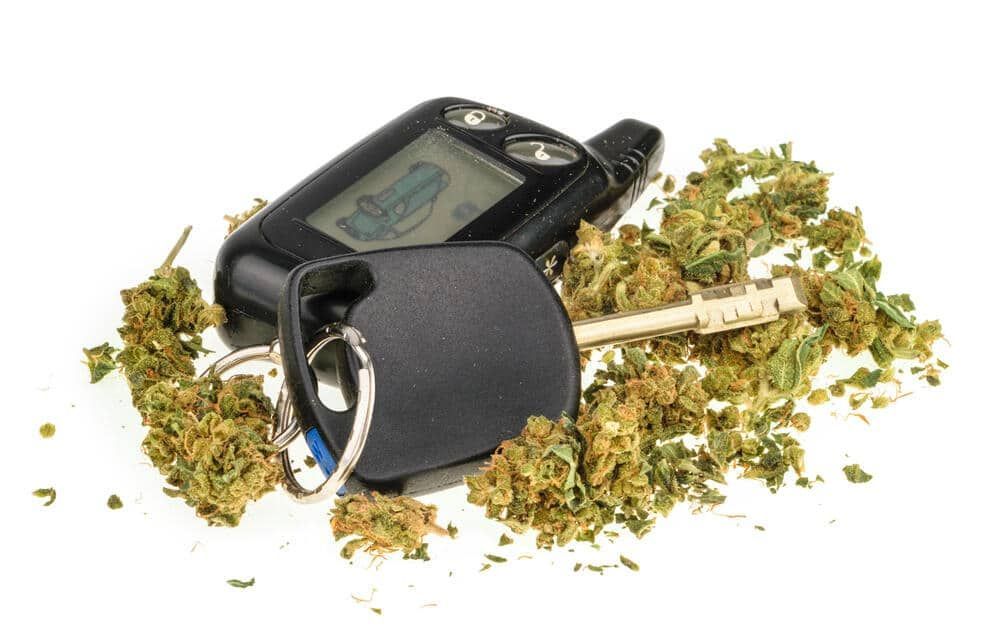D-U-High: Cannabis and Impaired Driving

With the Canadian government set to legalize recreational marijuana, 2018 is going to be a big year for changes on Canadian roads. As it stands (and since we’re talking about politics, we can’t promise anything), Canadians over the age of 18 should be able to purchase and consume recreational marijuana by October 2018.
Cannabis and Driving
After alcohol, marijuana is one of the most common intoxicants
found in impaired drivers – and is the most common intoxicant amongst young drivers. Studies show that marijuana affects cognitive and motor skills while driving and has been a contributing factor in many motor vehicle crashes. Marijuana consumption has been linked to impaired tracking skills, reduced ability to focus on multiple tasks, and negatively affects reaction times (think sudden hazards on the road). Further,
some studies
have found that
using marijuana nearly doubles the risk of being in a serious car crash.
Marijuana Legalization in Canada and Changes in the Law
In response to marijuana legalization, both federal and provincial governments are passing new legislation to toughen up impaired driving laws. Bill C-46
is proposed
federal legislation
that will create new offenses for specific levels of a drug in the bloodstream and set out the levels to determine when someone is impaired by marijuana. It would also approve the use of screening devices that test saliva for marijuana.
Alberta has passed its own laws
in preparation.
As of April 2018, there is zero-tolerance for cannabis for drivers in the Graduated Driver Licensing (GDL) program, just like it is for alcohol. Impaired drivers will also receive a 90-day license suspension, immediate vehicle seizure, require remedial education and one-year in the provincial interlock program.
More Accessible Marijuana, More Motor Vehicle Accidents?
Despite tougher impaired driving laws, Albertans can expect an increase in motor vehicle collisions and injuries once recreational marijuana is legalized, according to a new report
from the Injury Prevention Centre at the University of Alberta. After
examining data
from Colorado and Washington state (which both legalized marijuana in 2014), the report noted that impaired driving rates increased after legalization by about 9%. Sadly, the data also shows that
traffic fatalities increased markedly after marijuana legalization. In Colorado, traffic fatalities increased from 49 in 2010 to 94 in 2015. Traffic fatalities in Washington state jumped from 40 to 85 in the same time frame. The report suggests that more people drive while impaired by marijuana after legalization and that Albertans can anticipate a similar increase in injuries after legalization.
Hurt by an Impaired Driver?
If you’re hurt in a car accident
as a result of someone’s impaired driving, be it by alcohol, cannabis, or any other substance, be sure to talk to an experienced lawyer who can get you the compensation you are entitled to.
Contact
the knowledgeable car accident lawyers at ROBINSON LLP for a
free consultation.
Free Consultation
No upfront legal fees. You only pay if we deliver results.
Contact Us
We will get back to you as soon as possible.
Please try again later.
OUR EXPERTISE
COMPANY
Email: inquiries@robinsonllp.com
Phone: 780-429-1717
Robinson LLP Building
#101 - 10410 81 Ave. NW
Edmonton, AB T6E 1X5
Robinson LLP personal injury & medical malpractice lawyers. All rights reserved.
Privacy & Terms ------- Site Map
